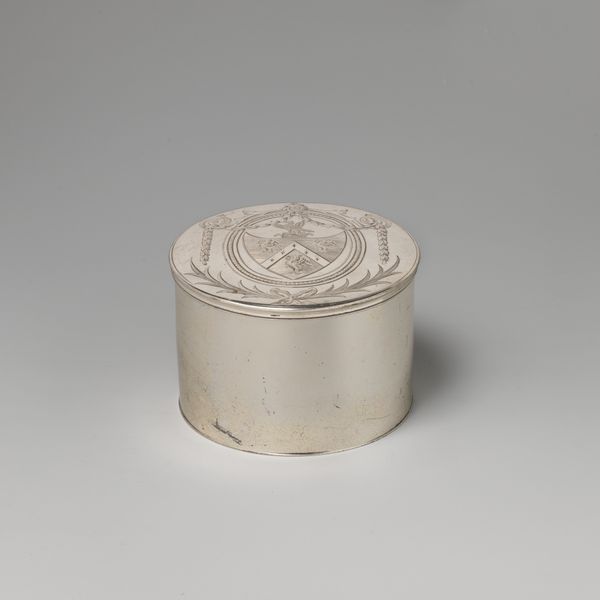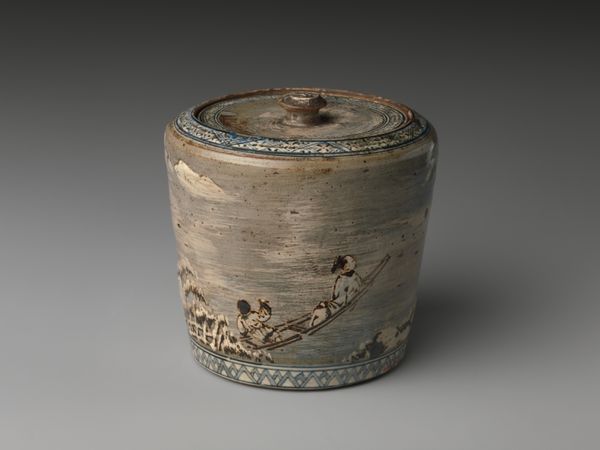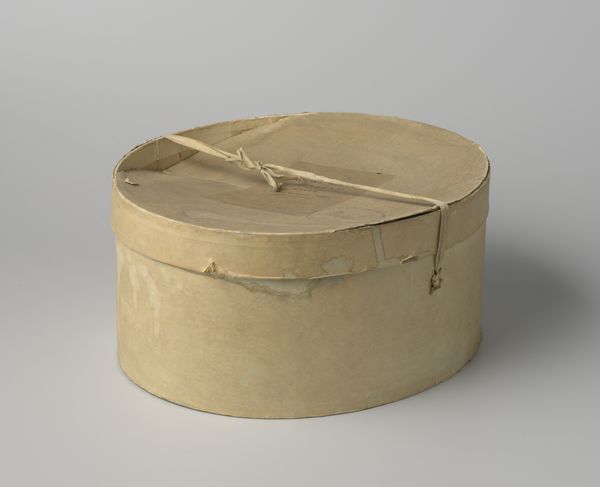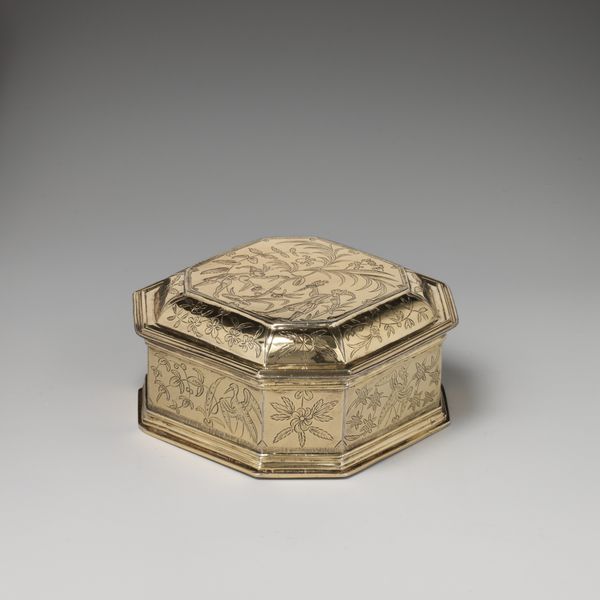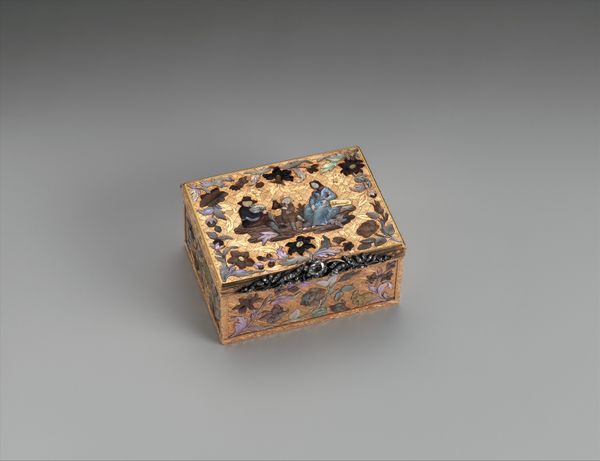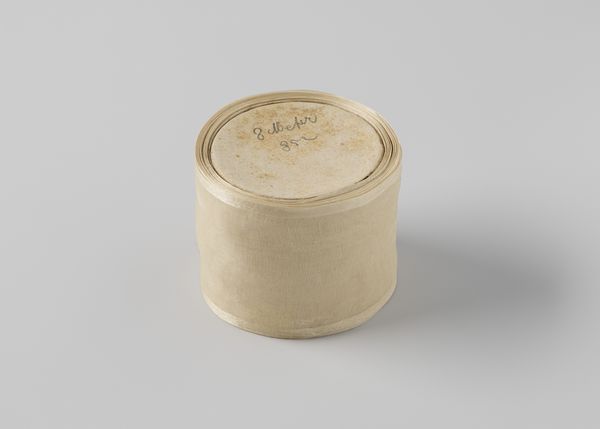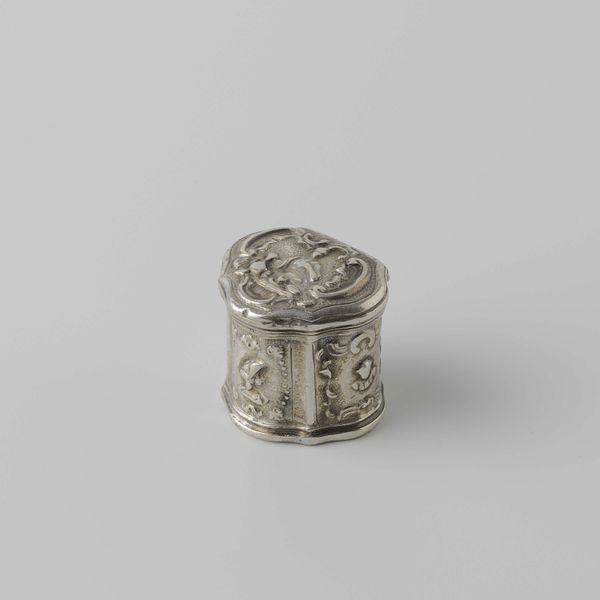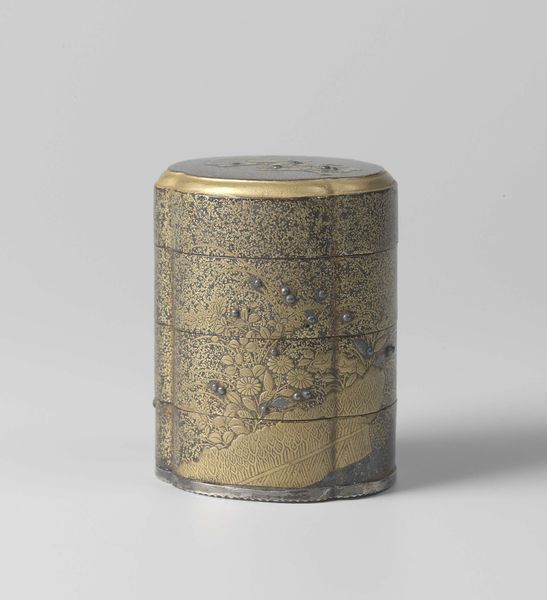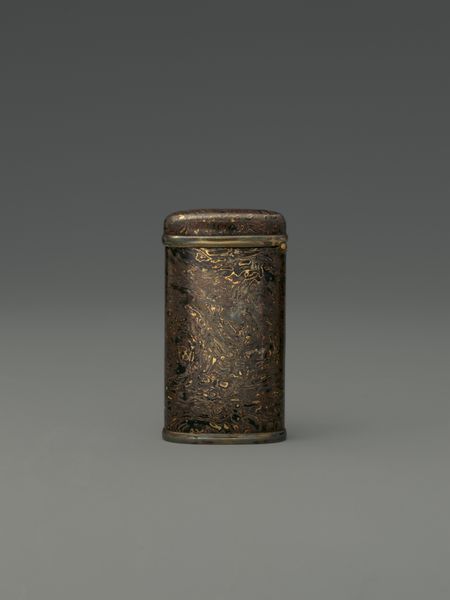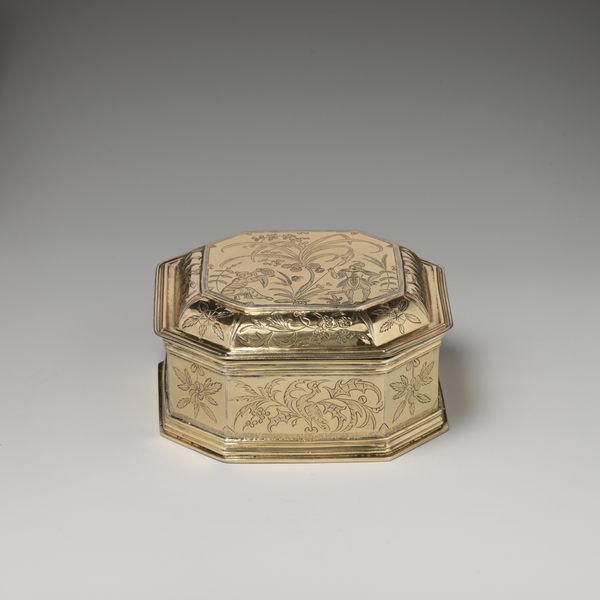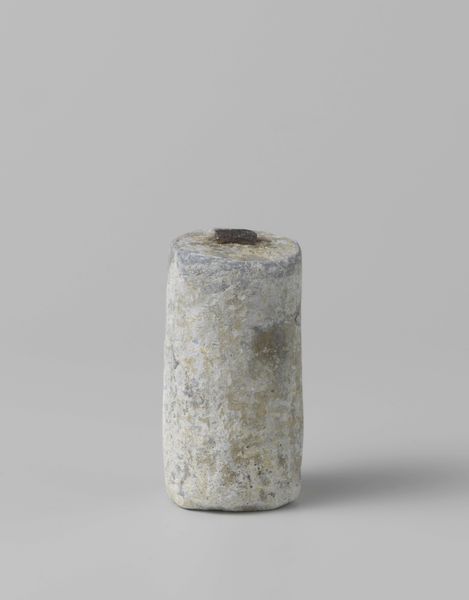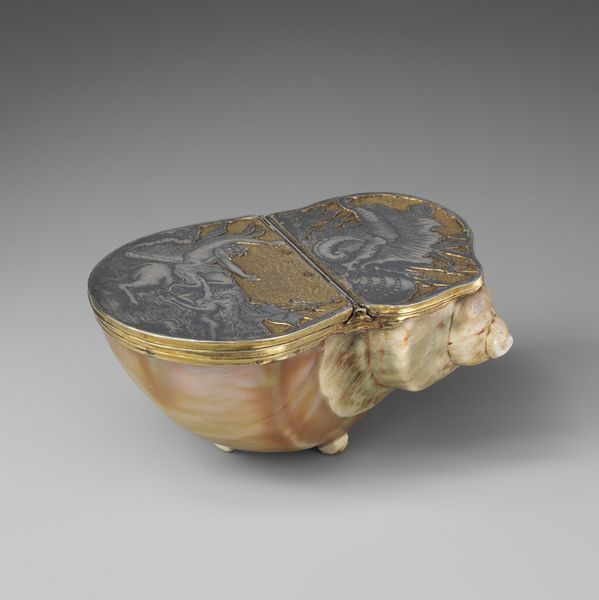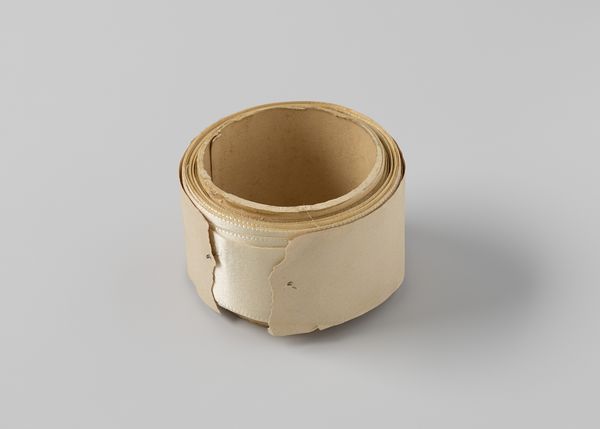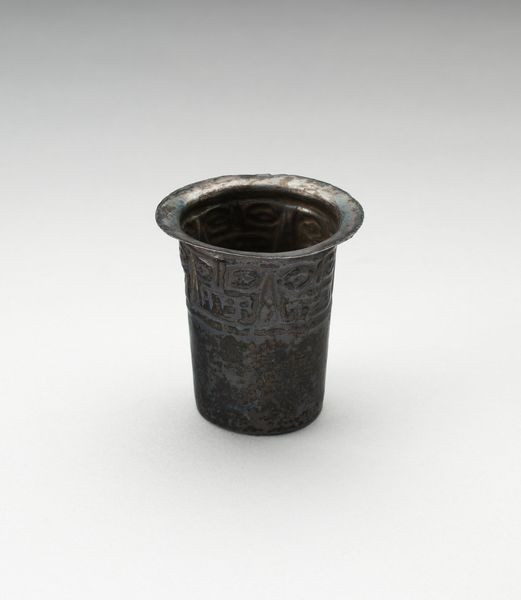
silver, metal, sculpture
#
medieval
#
silver
#
baroque
#
metal
#
form
#
sculpture
#
decorative-art
Dimensions: Box: 1 1/16 x 1 3/8 in. (2.7 x 3.5 cm); Counters: Diam. 1 1/16 in. (2.7 cm)
Copyright: Public Domain
Curator: Let's take a look at this curious object; it's a counter box with thirty-two counters, crafted from silver during the Baroque period, sometime between 1632 and 1649, likely by Willem de Passe. Editor: Intriguing! The piercing and delicate filigree gives it such an airy, ethereal quality, defying the cold hardness of the metal. It is intricate yet feels lightweight, visually at least. Curator: Precisely. These counter boxes were symbols of wealth, linked to elaborate accounting practices within merchant circles. The period witnessed expanding trade networks. Possession of such a piece showcased one’s place within society and mastery of managing increasingly globalized financial assets. Editor: The level of ornamentation is also interesting. It feels like form has completely subsumed function here. Note the repeating patterns, the balance, and the overall cylindrical design itself. Everything speaks of visual harmony and almost distracts one from the object's presumed purpose. Curator: Function remains intrinsic, though, informing the material choices and artistic expression that define it. Its existence reflects an age deeply interested in material culture and a burgeoning middle class looking to express newfound status through conspicuous displays of specialized objects. The images worked into the silver show how keen these buyers were for fashionable objects, a concept then relatively new in the world. Editor: I am more drawn to its formal properties and what they imply aesthetically. Notice the repetition in those pierced floral and animal designs—suggesting perhaps a desire to impose order, maybe to suggest some kind of formal control or even, by the mid 17th century, rationalization? It's a little baroque gem expressing structure as much as commerce. Curator: I think placing the form in its broader societal context allows us to see its true appeal beyond surface level design preferences or commercial function. Its meaning exists in how society chose to express class. Editor: A delightful microcosm indeed! It’s amazing to think about the blend of utility, and also artistic ingenuity condensed in a such piece. Curator: Exactly, its function being more about showing that its user was capable of operating it as a demonstration of their social position, what a marvelous display piece to study!
Comments
No comments
Be the first to comment and join the conversation on the ultimate creative platform.
